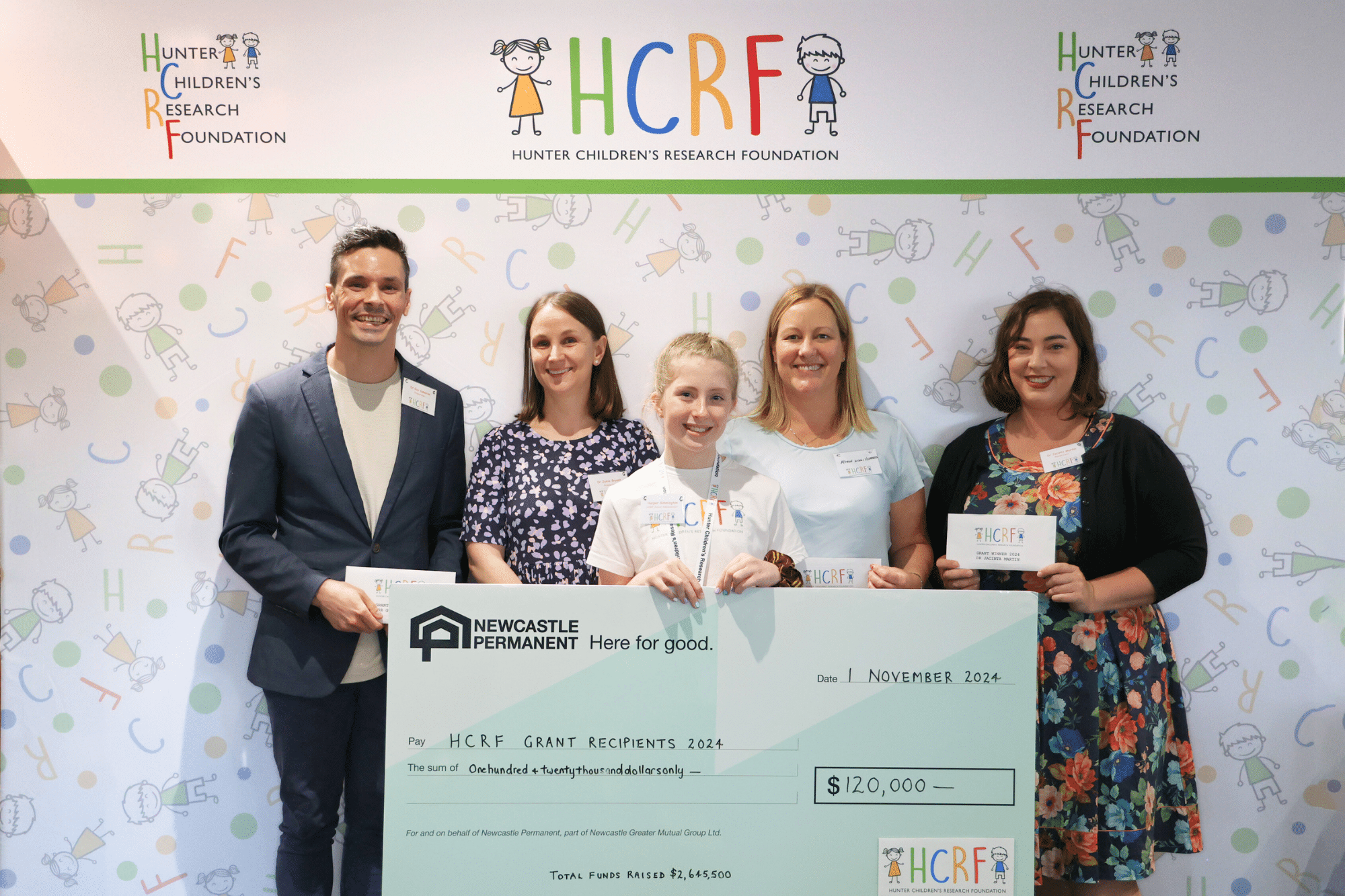
Hunter Children’s Research Foundation (HCRF) has announced the recipients of its 2024 Grant Awards, honouring four remarkable researchers for their dedication to advancing children’s health.
Their projects span critical fields, from cancer treatment and environmental health to genetic profiling in leukemia and hearing loss prevention in children, will receive help from a total of $120,000 in grant funding.
Five researchers were also recognised with the Community Acknowledgement of Research Excellence (CARE) Awards for their outstanding contributions to children’s health research in the Hunter New England region.
Over the past 27 years, HCRF has funded more than 75 grants, contributing more than $2.7 million toward groundbreaking paediatric health research. These initiatives support local and global advancements in children’s healthcare, fuelled by a dedicated team of volunteers at HCRF.
Each year in Australia, over 700 families receive the devastating news that their child has cancer, including 51 families in the Hunter region in 2023.
Dr Bryant’s project aims to comprehensively understand the unmet needs of children with cancer and their families and create two new surveys to identify unmet needs”
These tools will be co-designed with families receiving care from John Hunter Children’s Hospital Cancer Service. This work will support healthcare providers to offer more tailored support to meet the specific needs of children with cancer and their families.
PFAS are a family of chemicals that have been linked with negative health outcomes, including pregnancy conditions and congenital abnormalities in children.
These effects appear to rely on the transfer of PFAS from mother to child. Indeed, evidence has shown that PFAS can cross the placenta and accumulate in the developing baby. Additionally, PFAS have been detected in breastmilk signifying continued transfer after birth affecting infants.
This project will bridge this important knowledge-gap by investigating the maternal and offspring health effects of PFAS chemical exposure.
We will use this information to develop effective interventions to lower or eliminate the risk of exposure in women and their children- this is an emerging need in the region and nationally. This project is also expected to generate important findings to support changes in legislation regarding safe PFAS use.
Acute myeloid leukaemia (AML) is the second most common blood cancer in children. This project seeks to use a genomic understanding of AML to understand the causes and help identify biomarkers for existing treatment options and new treatment approaches.
It will supplement genomic platforms with proteomic, phosphoproteomic, and drug sensitivity information. Proteogenomics holds the key to uncovering rational therapeutic targets that cannot be predicted by genomics alone.
Otitis media (OM) typically results from a bacterial infection in the middle ear. This causes significant pain with hearing loss as fluid accumulates behind the eardrum. This can also lead to developmental delay.
Up to 70% of Aboriginal and Torres Strait Islander children are affected by OM in the first few years of life. It’s not understood why these children experience higher rates of, and more severe disease.
It is the leading cause of preventable deafness in children with lifelong impact and disadvantage.
Dr Cameron works closely with Associate Professor Kelvin Kong and is a young Indigenous medical doctor and medical researcher. This project looks to build better models to understand the disease to develop much needed treatments.
The HCRF, in conjunction with prominent local Hunter businesses, developed the Community Acknowledgement of Research Excellence (CARE) Awards to recognise the research efforts of individuals and teams working for a children, young people and families service who are committed to improving the health and wellbeing of Hunter children.
Clinical peers nominate the colleagues they regard as being worthy of receiving recognition for the difference they have made, or are making, with their research in child health.
HCRF CARE Award winners for 2024 are:
HMRI would like to acknowledge the Traditional Custodians of the land on which we work and live, the Awabakal and Worimi peoples, and pay our respects to Elders past and present. We recognise and respect their cultural heritage and beliefs and their continued connection to their land.

Hunter Medical Research Institute
We’re taking healthy further.
Locked Bag 1000
New Lambton
NSW, Australia, 2305



This site is protected by reCAPTCHA and the Google Privacy Policy and Terms of Service apply.
Copyright © 2024 Hunter Medical Research Institute | ABN: 27 081 436 919
Site by Marlin Communications
